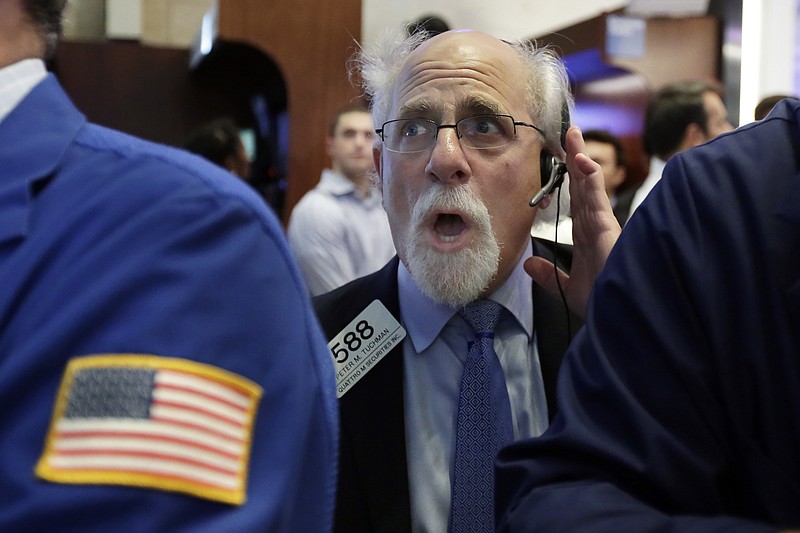NEW YORK (AP) - U.S. stocks hardly budged Monday as smaller firms and retailers rose while health care companies and banks declined. Chemical and mining companies rose as the dollar weakened.
Precious metals rose as the dollar, already at its lowest levels in almost a year, weakened a bit further. Bond yields slipped, sending banks lower and high-dividend stocks like utilities and household goods companies higher.
With indexes at or near record highs and another round of corporate earnings reports just beginning, investors didn't make many big moves and stocks wobbled between small gains and losses all day.
Investors expect another solid round of corporate earnings, and they think the Federal Reserve will be more cautious about raising interest rates because of some weak economic data, including Friday's report on retail sales.
"The fundamental picture for investors seems to be sort of strangely perfect, with improving fundamentals and a central bank with its foot that was only weakly on the gas coming off the gas," said Katie Nixon, chief investment officer for Wealth Management at Northern Trust.
The Standard & Poor's 500 index lost 0.13 points to 2,459.14. The Dow Jones industrial average shed 8.02 points to 21,629.72. The Nasdaq composite gained 1.97 points to 6,314.43. The Russell 2000 index of smaller-company stocks rose 2.79 points, or 0.2 percent, to 1,431.60.
The S&P 500, Dow and Russell 2000 all closed at record highs Friday. The Nasdaq has rallied almost 4 percent in the last seven days, and it's recovered almost all of the losses it sustained when technology companies went into a slump in early June.
The dollar has been declining this year as investors have concluded the federal government isn't close to any kind of infrastructure spending package, which would strengthen the U.S. economy. Meanwhile economies in Europe are doing better and interest rates there are rising, which makes European currencies stronger.
The dollar rose to 112.66 yen from 112.56 yen. The euro rose to $1.1480 from $1.1467. The ICE U.S. Dollar Index is at its lowest level since early September.
Gold rose $6.20 to $1,233.70 an ounce. Silver gained 17 cents, or 1 percent, to $16.10 an ounce. Copper rose 3 cents, or 1.2 percent, to $2.72 a pound.
Investment firm BlackRock dipped after it reported weaker-than-expected results in the second quarter. The company's earnings and revenue fell short of Wall Street forecasts, and its stock declined $13.71, or 3.1 percent, to $425.63.
After the end of regular trading, Netflix said it picked up 5.2 million subscribers in the second quarter. That was its biggest gain ever in what's usually a slow period, and the streaming video company's stock jumped 11 percent aftermarket.
Financial giant Goldman Sachs, health care products maker Johnson & Johnson and health insurer UnitedHealth will report their second-quarter results early Tuesday.
Bond prices rose. The yield on the 10-year Treasury note fell to 2.31 percent from 2.33 percent.

